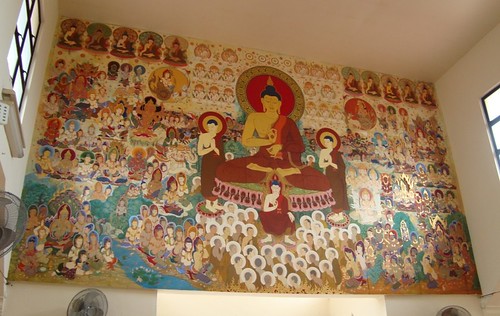And some modern monks and lay people chanting may be viewed here:Thanissaro Bhikkhu wrote:The Commentary reports the belief that the devas enjoy hearing this discourse chanted in Pali. Until recently it was part of many monks' standard memorized repertoire, to be chanted at weddings and the dedication of new buildings. Even today, as many of the traditions of memorization in Asia seem to be falling by the wayside, there are a few monks and laypeople who chant this discourse regularly.
http://www.youtube.com/watch?v=3OEIcS9DGNk" onclick="window.open(this.href);return false;
http://www.youtube.com/watch?v=yH2JjEK6WOg" onclick="window.open(this.href);return false;
http://www.youtube.com/watch?v=GuZMWDgkPog" onclick="window.open(this.href);return false;
http://www.youtube.com/watch?v=ss3x5ya53yk" onclick="window.open(this.href);return false;
And an MP3 and a Pali-English version to follow along with are on this page:
http://www.dhammatalks.org/Archive/Chants/Chants.html" onclick="window.open(this.href);return false;
http://www.dhammatalks.org/Archive/Chan ... 0Sutta.mp3" onclick="window.open(this.href);return false;
http://www.dhammatalks.org/Archive/Chan ... samaya.pdf" onclick="window.open(this.href);return false;




